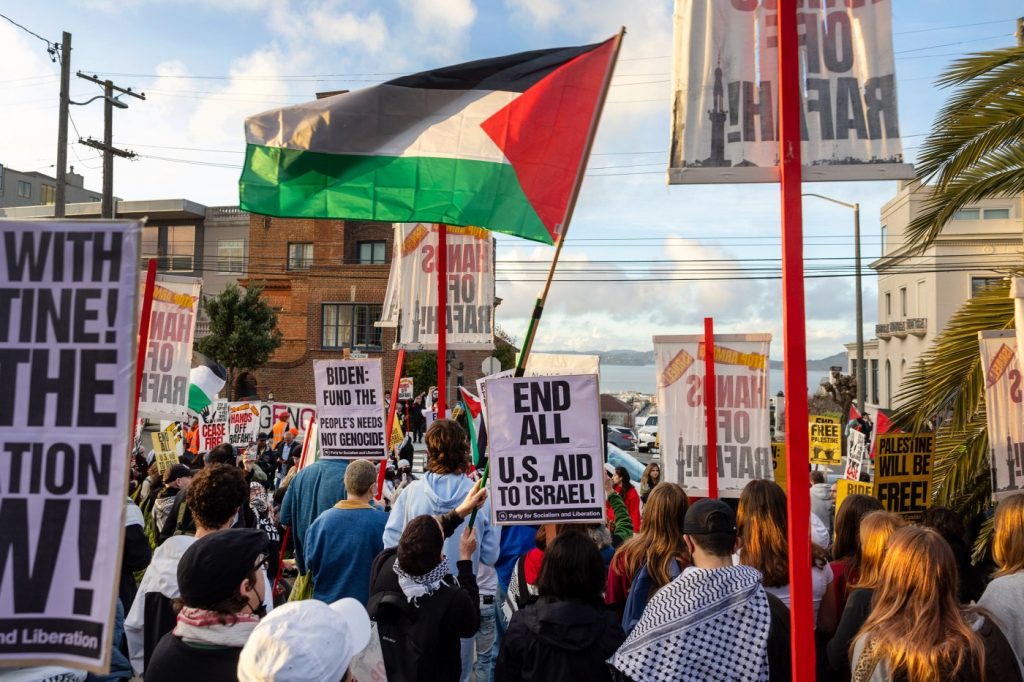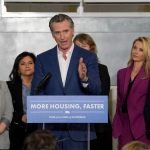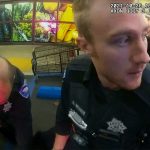After hundreds of activists urged the South San Francisco City Council to call for a ceasefire in Gaza, councilmembers voted 4-0 (with one abstention) this week to pass a resolution calling for an end to the war, the release of Israeli hostages taken by Hamas in an attack on Oct. 7, and the flow of humanitarian aid into Gaza.
The Oct. 7 attack also killed 1,200 Israelis. Israel’s war in Gaza following the attack has killed more than 34,500 Palestinians, according to Gaza’s Health Ministry.
“The City of South San Francisco acknowledges the suffering of the peoples of Palestine and Israel, who have been denied the opportunity to thrive and reach their full potential, and affirms our shared humanity,” read the resolution.
South San Francisco became the second city on the Peninsula to call for a ceasefire, following East Palo Alto, which adopted a similar resolution last month.
While a local resolution may not have a direct impact on foreign policy, pro-Palestinian activists believe measures like the one passed Wednesday night in South San Francisco might have a ripple effect on other cities, which could influence the federal government to take a stronger stance against Israel’s military action in Gaza.
“This is a local issue, because we have a strong Palestinian, Arab and Muslim community here in South San Francisco,” said resident Cesar Rodriguez, who helped organize public support for the resolution. “So many of us can talk about some of our closest friends being from Palestine, and other countries in the region. Palestinians are part of this city.”
Earlier in the week, Richmond in the East Bay took its ceasefire resolution a step further and adopted a policy to divest from companies that support Israel’s military operations.
The calls for disclosure and divestment of financial interests and ties to Israel from public institutions has grown over the past several weeks as pro-Palestine encampments have been set up on college campuses across the country.
When asked if South San Francisco would follow Richmond’s lead, 21-year-old Mayor James Coleman said, at leat for now, “the focus has to be on getting a ceasefire and finding a path to long-lasting peace.”
About a dozen community members opposed to the resolution also came to the meeting, with some calling the local ceasefire resolution antisemitic or anti-Jewish.
During the council’s deliberations over the resolution, Councilmember Mark Addiego objected to that characterization.
“Because I’m willing to support a ceasefire, that means I’m antisemitic? Nothing like that resides in me,” Addiego said. “The city of South San Francisco acknowledges the suffering of the peoples with Palestine and Israel who have been denied the opportunity to thrive and reach their full potential. So this ceasefire (resolution), in my mind, can bring healing to the community.”
While other cities on the Peninsula such as Palo Alto and San Bruno have taken a position that foreign affairs is beyond the jurisdiction of local government, Coleman said that passing the South San Francisco resolution was a “moral obligation.”
“We don’t have direct power over foreign policy, but we have a an obligation to stand up for what is right and to call for peace,” Coleman said. “Our Palestinian community is asking to be seen and to be heard.”
Supporters of the resolution were emotional as the City Council finally took it to a vote after 10:30 p.m.
Some took deep breaths, others cried, and as the council affirmed the resolution, cheered for joy and hugged each other.
Among them, a young Palestinian-American student who wanted to be identified only as Katrina due to safety concerns, said that while she knows the resolution won’t end the war, it gives her hope that local campaigns like theirs can make an impact globally.
“It’s all about the little wins. If we can’t get the big wins right away, then we’ll take what we can, when we can, and keep working toward a better future,” Katrina said.


